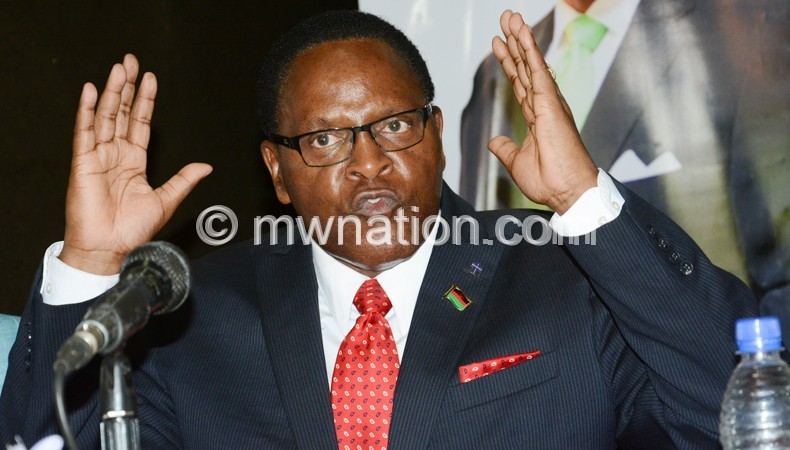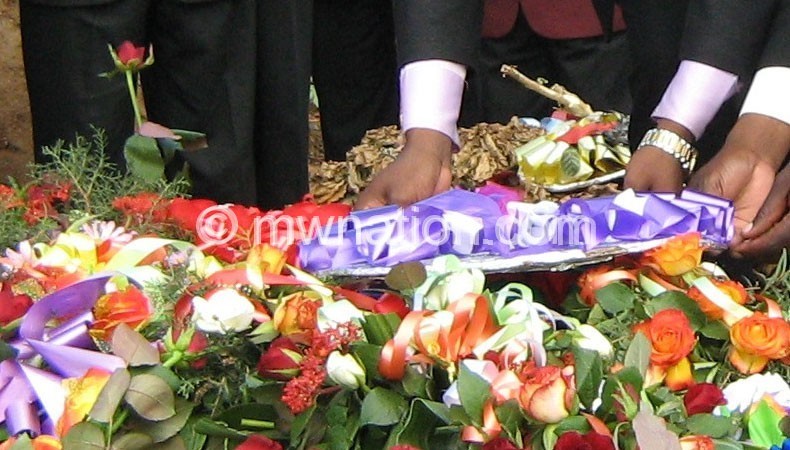No talks on Martyrs’ claims
The United Kingdom (UK) High Commissioner to Malawi, Mr. Michael Nevin, has dismissed compensation claims by families of people who died during the March 3, 1959 struggle for this country’s independence.
The envoy, in a questionnaire response to Nation on Sunday last week, said though his government is saddened by the loss of life during the struggle, the issue of compensation does not arise as UK has not held any discussion with Lilongwe on the matter.

Said envoy Nevin in his response: “We are saddened by any loss of life. [But] we have had no discussion with the government of Malawi on this matter and do not consider the issues of compensation arise.”
The envoy’s reply alludes to the deep-rooted ties, stating: “UK and Malawi enjoy a close and deep relationship that stretches back over many years and we look forward to that relationship continuing in the years ahead.”
According to witnesses of the massacre that marred a state of emergency nearly 56 years ago, heavily armed Federal Government soldiers from Rhodesia and Nyasaland, who were not directly under Britain as the federation was a unilateral jurisdiction, shot dead unarmed Malawians who were protesting the looming arrest of Malawi’s founding president Dr. Hastings Kamuzu Banda.
The soldiers were operating under the orders of a Salisbury-based (now Zimbabwe) federal district governor John Brooke.

The lack of dialogue between Lilongwe and London on the issue, on Tuesday (March 3) compelled Senior Chief Nkumbira of Nkhata Bay to tell Minister of Finance, and Economic Planning and Development Goodall Gondwe to say: “We are gathered here because British soldiers killed innocent people. Please go and remind [the Malawi] government that the people of Nkhata Bay are still waiting for compensation from Britain for our people.”
Malawi’s Foreign Affairs spokesperson Quent Kalichero said Malawi can only respond by Monday [tomorrow] whether Lilongwe has engaged Britain on the matter.
But in a separate interview, Minister of Information, Tourism and Culture, who is also government spokesperson, said Malawi has no record of any requests for reparation.
“Much as we appreciate the concerns, government would like to ask the concerned Nkhata Bay citizens to formally present the issue to government.
“We will then discuss with them and after that we will be able to advise on the possible way to handle the matter because this issue needs to be handled soberly and diplomatically,” said Nankhumwa.
After the Martyrs’ Day function in Nkhata Bay, Chakwera, who is also president of the Malawi Congress Party (MCP) that led this country’s independence struggle, visited Kasweswe Village in Chief Nkumbira’s area and met 20 families who are said to be close to the martyrs. The families reminded Chakwera about their demand.
The MCP leader promised the tearful petitioners that he would soon meet senior lawyers on whether to seek redress through courts or the National Assembly.
In June 2013, Britain paid £19.9 million in costs and compensation to more than 5 000 elderly Kenyans who suffered torture and abuse during the Mau Mau uprising in the 1950s.
At the time, UK’s foreign secretary William Hague told the British House of Commons that the out-of-court payment constituted “full and final settlement” of a high court action brought by five of the victims who suffered under the British colonial rule.”
The Guardian newspaper of UK also quoted Hague as saying: “We understand the pain and the grief felt by those who were involved in the events of emergency in Kenya.
Nkhata Bay Central MP Ralph Mhone, who could not pick our calls when we called him to comment on the reply from London, believes the aggrieved Malawians have a good case against Britain and promised to help relatives of those who were either tortured or killed while fighting for liberation from British colonial rule in a battle for justice done.

“While I support the claims, it is not easy to succeed because there are serious legal obstacles that stand in the way when matters have not been taken to court for such a long time. I think we should study what happened in Kenya for their claims to succeed.”
Kanyongolo singled out poor record-keeping, disappearance of evidence and deaths of witnesses among some technical impediments that may affect the case that is coming out 56 years after the federal soldiers, opened gunfire on unarmed civilians.





